
AI model orchestration platforms are critical for managing workflows across models, data, and environments. But with sensitive data, proprietary algorithms, and compliance on the line, security is non-negotiable. Here's a quick summary of four leading platforms and their security strengths:
Each platform fits different needs: Prompts.ai excels in governance and cost savings, Kubeflow is great for Kubernetes users, Airflow offers workflow visibility, and MLflow supports experiment tracking. Choose based on your security and operational priorities.
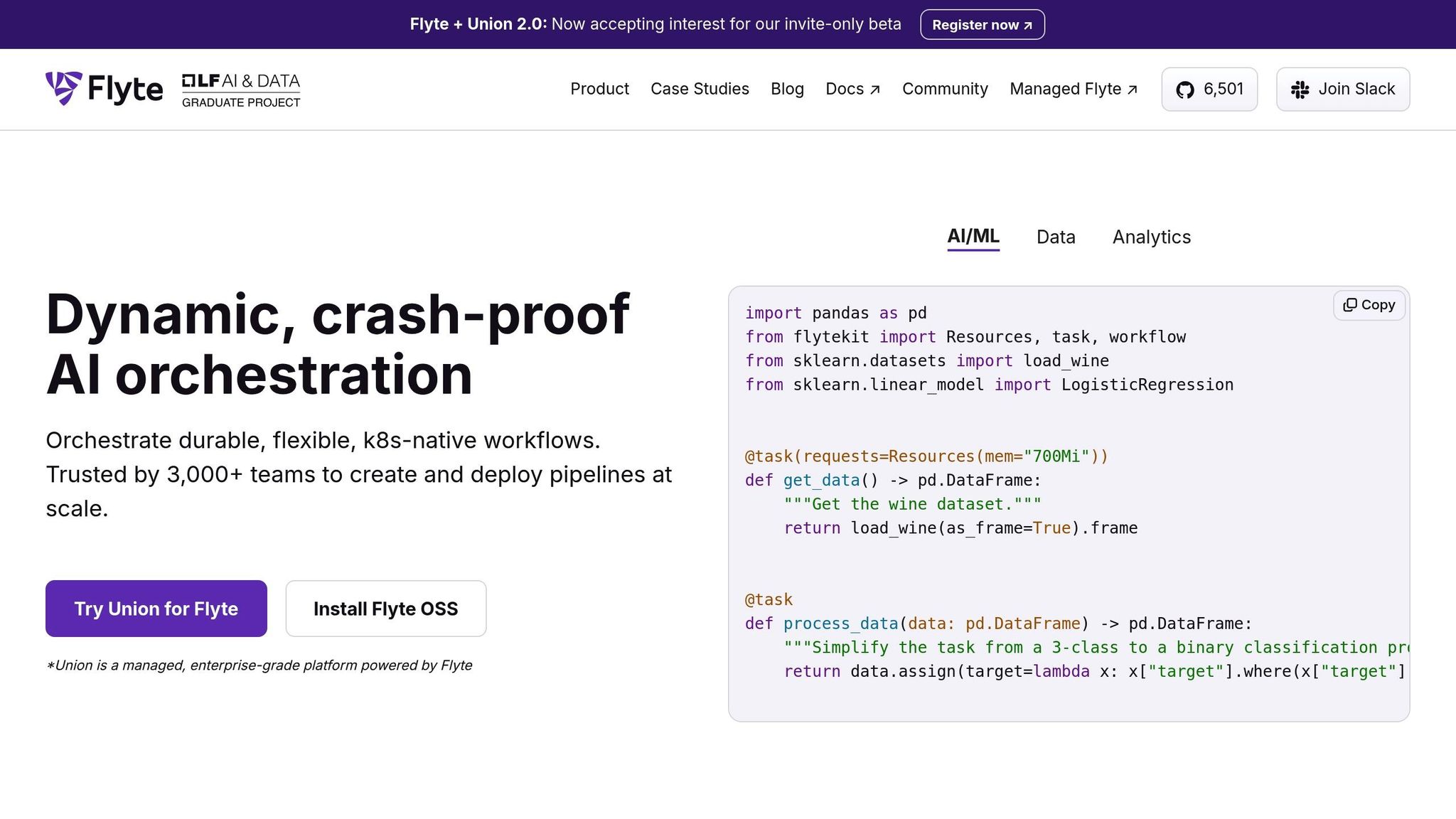
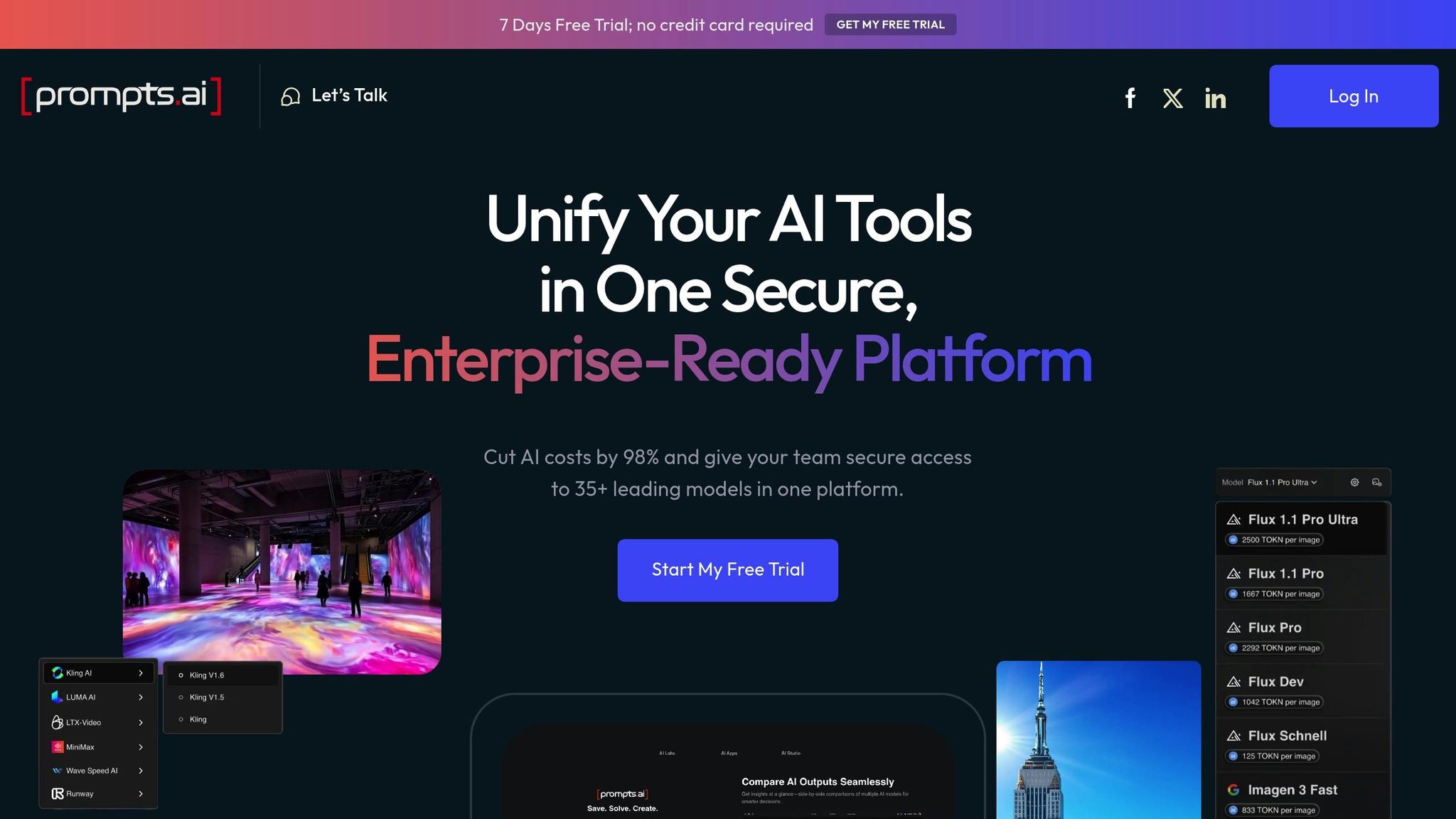
Prompts.ai ensures top-tier security by combining strong data protection, precise access management, and adherence to regulatory standards - all within a unified platform for AI orchestration. With integrations spanning over 35 leading large language models, the platform provides a secure foundation for handling sensitive AI workflows.
Data Protection
Prompts.ai is designed to process data securely without exposing sensitive customer information. This approach minimizes risks and safeguards confidential business insights throughout the orchestration process. Its secure data handling is seamlessly paired with robust access control measures to create a reliable system.
Advanced Access Control Systems
The platform employs role-based access control (RBAC) with detailed permissions, enabling administrators to define exactly who can access specific models, prompts, and workflows. Collaborative features, such as annotated comments and commit messages, create a clear and transparent chain of custody for every change. By decoupling prompt management from source code, Prompts.ai allows wider team collaboration without compromising security.
Comprehensive Audit Trails and Monitoring
Prompts.ai maintains detailed audit logs to track all interactions, model requests, and configuration changes. Each version of a prompt is assigned a unique identifier, and release labels like "prod" and "staging" make it easy to identify deployment environments and track changes. Users can compare, revert, or branch prompts as needed, ensuring full visibility and control over modifications.
"In April 2025, Ellipsis reduced debugging time by 90% and scaled to over 500,000 requests and 80 million daily tokens, while quickly resolving customer workflow issues, leveraging PromptLayer's monitoring and management tools."
Real-Time Performance and Cost Monitoring
The platform's integrated FinOps tools provide real-time insights into latency, costs, usage, and token consumption. Filtering options help pinpoint effective prompts and flag underperforming ones, enabling informed, data-driven decisions to enhance both security and efficiency.
Compliance and Regulatory Support
Prompts.ai simplifies compliance by offering detailed logging, comprehensive request histories, and advanced error detection. These features help organizations meet audit requirements with ease while resolving issues in large language model (LLM) interactions quickly and effectively.
"Higher education users have praised PromptLayer for its visual prompt management and request history tools, resulting in cost savings and easier experimentation."
Enterprise Integration Security
Prompts.ai uses a pay-as-you-go TOKN credit system, eliminating the risks tied to recurring subscription fees and ensuring full cost transparency. By consolidating multiple AI tools into a single, monitored environment, the platform significantly reduces the attack surface that typically comes with managing numerous vendor relationships and access points.
With these features, Prompts.ai stands out as a powerful choice for enterprises that demand advanced AI capabilities while maintaining strict security and compliance standards. It’s particularly well-suited for environments where data protection and audit readiness are non-negotiable.
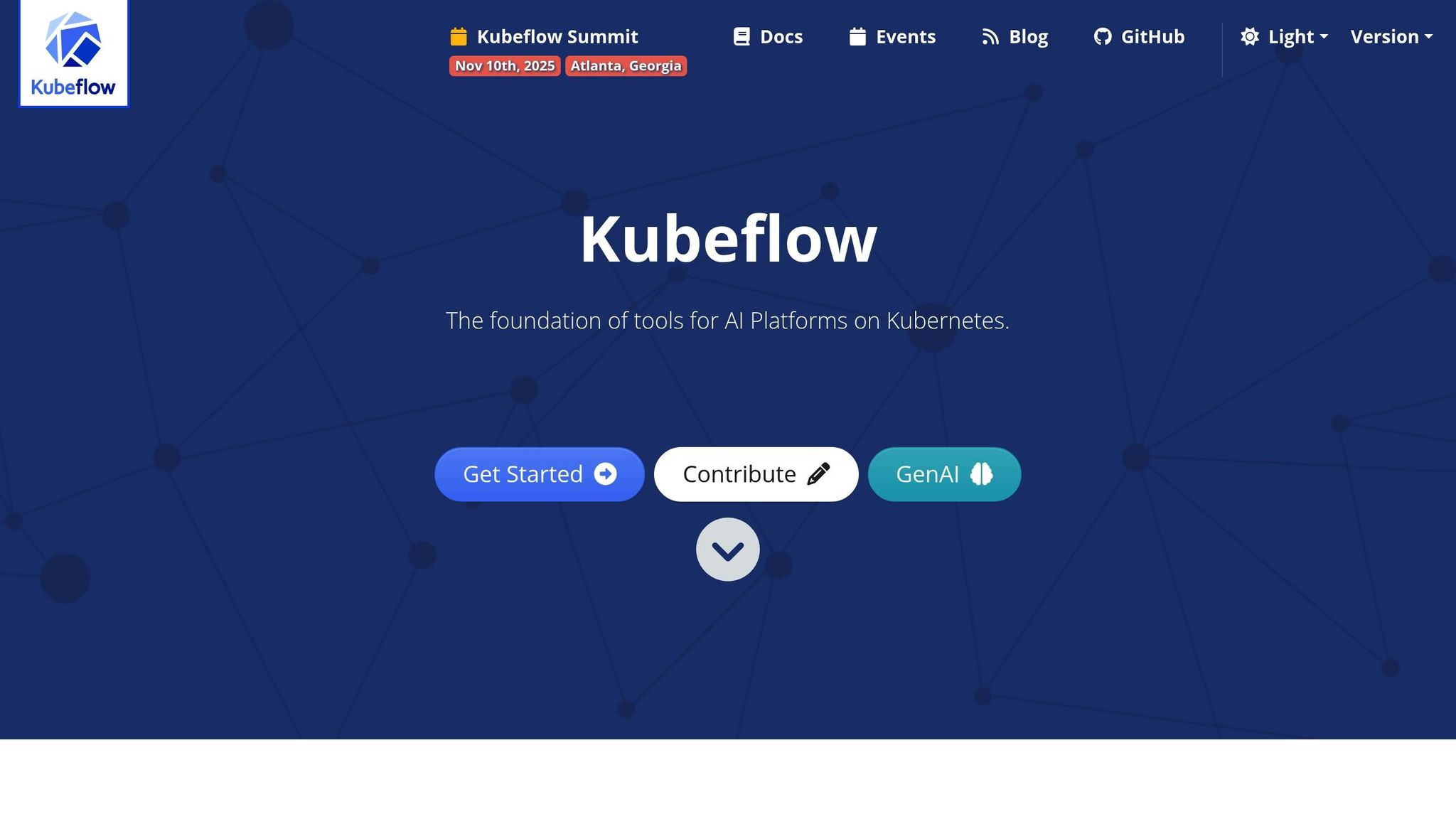
Kubeflow brings Kubernetes-native security into the world of AI model orchestration, combining proven practices with tailored support for machine learning workflows. Below, we explore how Kubeflow safeguards identities, data, and operations.
Kubernetes-Based Security Foundation
Kubeflow builds on Kubernetes' secure infrastructure, utilizing features like network policies, pod security standards, and resource isolation. Each machine learning component operates within its own container, with clearly defined resource limits. Kubernetes' native Role-Based Access Control (RBAC) ensures secure management of compute resources, storage, and networking. By using separate namespaces, Kubeflow allows teams or projects to work independently, maintaining clear boundaries for GPUs, storage volumes, and network access.
Identity and Access Management
To streamline secure access, Kubeflow integrates with enterprise identity providers such as OIDC and LDAP, enabling single sign-on for role-based access to machine learning resources. When paired with a service mesh like Istio, mutual TLS encryption ensures that all component communications are both confidential and authenticated.
Data Security and Pipeline Protection
Sensitive data is protected through Kubernetes secrets and secure storage mechanisms. Kubeflow also supports version-controlled pipeline definitions, providing an auditable history of changes. Additionally, artifact tracking ensures a complete record of data transformations, model versions, and deployment history, which is particularly useful for regulatory compliance and troubleshooting.
Compliance and Monitoring Features
Kubeflow logs machine learning operations, allowing seamless integration with monitoring tools like Prometheus and Grafana. This setup provides real-time insights into resource usage, performance metrics, and security events.
Enterprise Security Integration
Designed for enterprise needs, Kubeflow supports private container registries, air-gapped environments, and a modular architecture. By disabling unnecessary components, the platform minimizes its attack surface. In production settings, critical elements such as the pipeline engine and model-serving infrastructure can operate separately from development tools, creating a secure and efficient environment that adheres to open-source Kubernetes best practices.
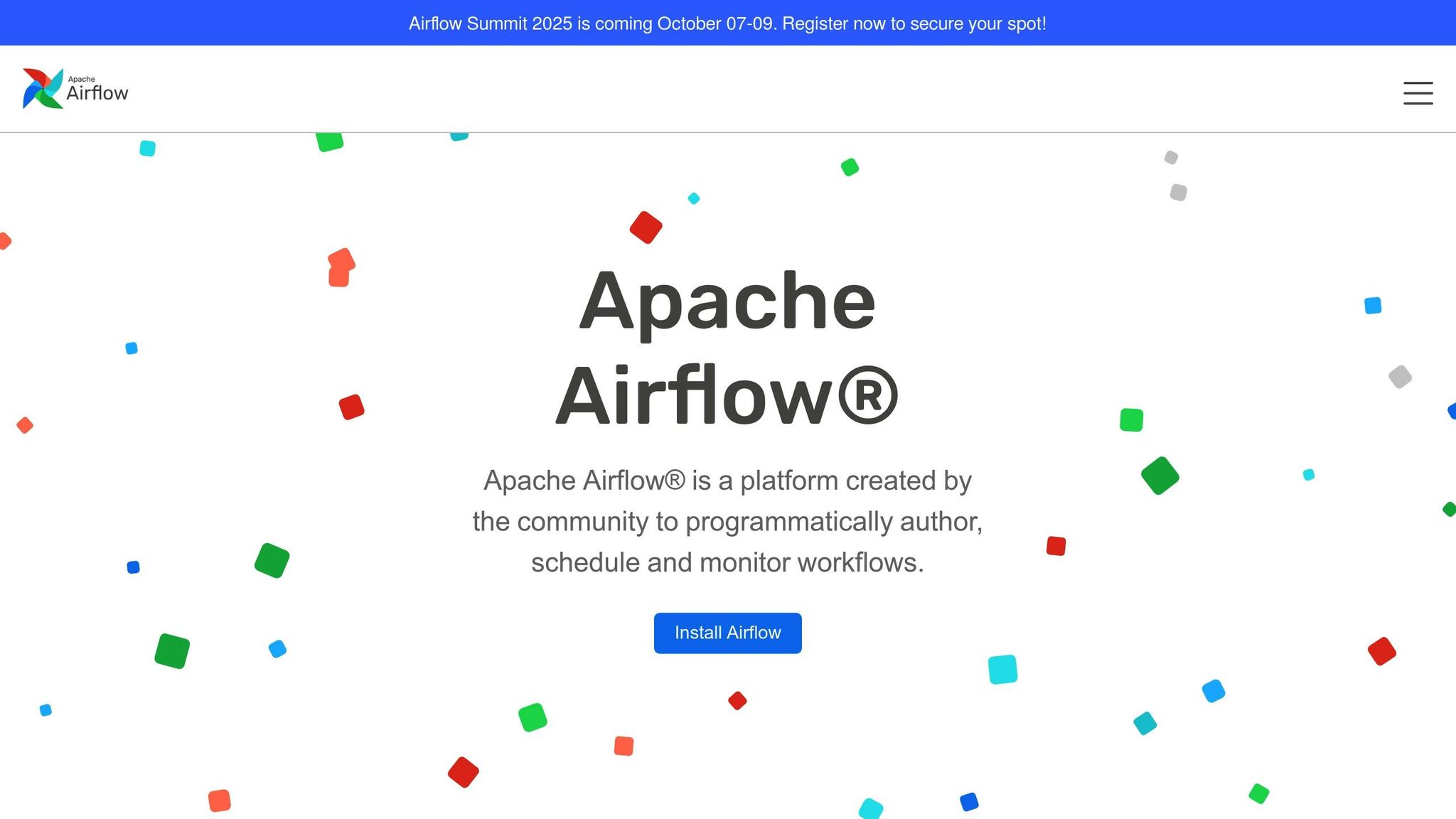
Airflow employs Role-Based Access Control (RBAC) and integrates with multiple authentication systems to ensure that only authorized users can manage workflows.
Authentication and Access Control
Airflow supports a range of authentication methods, including password-based login, LDAP, OAuth, and Kerberos, making it easy to align with existing identity management systems. Its RBAC framework allows administrators to assign specific roles, enabling detailed control over access to critical workflow components. This ensures that AI model pipelines are protected with clearly defined restrictions. These capabilities make Airflow a secure and reliable choice for workflow orchestration.
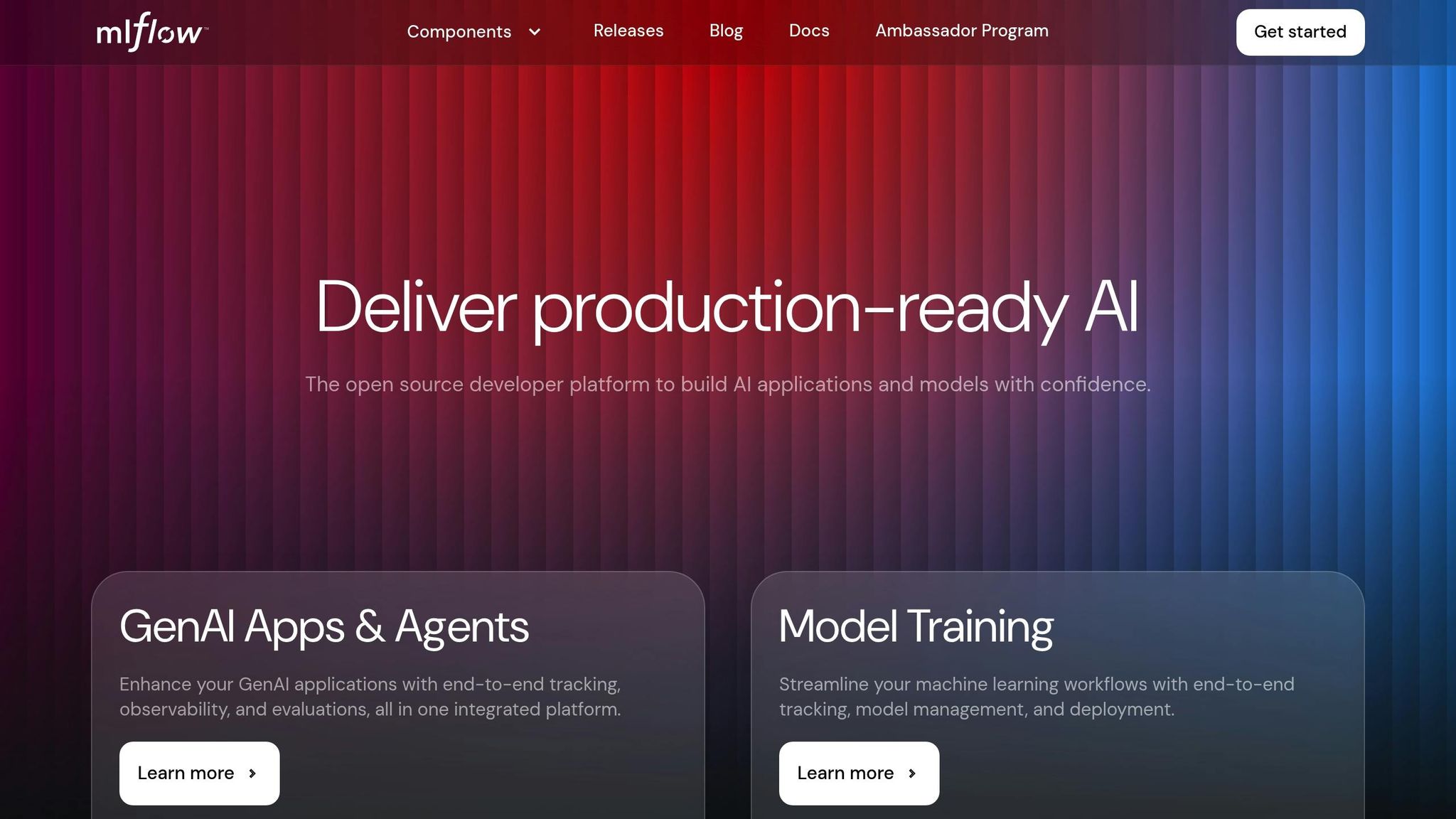
MLflow is an open-source platform designed to manage the machine learning lifecycle. Its security largely depends on how it is deployed, requiring administrators to implement additional safeguards to meet enterprise security standards. Below are key security configurations that can be applied when deploying MLflow.
Data Protection and Encryption
MLflow does not include built-in encryption capabilities. However, it can operate securely within controlled environments. Organizations can enhance security by enabling SSL/TLS for communication and utilizing storage systems that offer encryption at rest. In cloud-based setups, MLflow benefits from the encryption and network security features provided by the cloud provider's infrastructure.
Authentication and Authorization
MLflow lacks a comprehensive built-in framework for authentication and authorization. To address this, administrators often use external tools, such as reverse proxies or API gateways, to regulate access. These tools help ensure that only authorized users can interact with experiment data, models, and associated artifacts.
Audit Logging and Compliance
Although MLflow records essential details about experiments and models, it does not provide dedicated audit logging to meet compliance requirements for regulations like SOX, GDPR, or HIPAA. To bridge this gap, additional logging and monitoring solutions must be integrated.
Deployment in Secure Environments
MLflow can be deployed within private cloud environments or on-premises, offering options like network isolation, virtual private cloud (VPC) configurations, and other security-focused practices. This deployment flexibility allows organizations to align MLflow with their internal security policies and governance requirements.
When choosing an AI model orchestration platform, understanding its security strengths and limitations is crucial. Each platform offers distinct features that cater to different enterprise needs, making it essential to evaluate how these align with your specific requirements.
Prompts.ai takes the lead in enterprise-level security, providing robust data protection alongside real-time audit trails. It meets rigorous compliance standards through comprehensive governance frameworks, making it a strong choice for companies prioritizing security and regulatory adherence.
Kubeflow builds on Kubernetes' well-established security ecosystem. It offers excellent container isolation and network security policies, integrating seamlessly with cloud-native security tools. This platform shines in multi-tenant setups, where isolating teams and projects is a top priority.
Airflow emphasizes monitoring and logging, which are critical for thorough security investigations. With a mature ecosystem of plugins and integration capabilities for enterprise authentication, Airflow ensures detailed auditability. However, its general-purpose design means it may require additional customization to address model-specific governance.
MLflow stands out with its experiment tracking and model registry, which provide a transparent audit trail for model management. While it offers strong tracking capabilities, achieving full enterprise-level security often requires integrating supplemental tools. Its clear audit trail is particularly valuable for maintaining model integrity and supporting compliance efforts.
| Feature | Prompts.ai | Kubeflow | Airflow | MLflow |
|---|---|---|---|---|
| Data Encryption | Built-in end-to-end | Kubernetes-native | Configuration required | External implementation |
| Access Controls | Enterprise RBAC | K8s RBAC + policies | Plugin-based | External tools needed |
| Audit Logging | Comprehensive | Container-level | Workflow-focused | Experiment tracking |
| Compliance Certifications | Enterprise standards | Cloud provider dependent | Limited built-in | Requires additional tools |
| Multi-tenant Isolation | Native support | Strong K8s isolation | Basic separation | Manual configuration |
| Deployment Complexity | Managed service | High (K8s expertise) | Moderate | Low to moderate |
This comparison highlights how each platform addresses security in unique ways. For example, MLflow's experiment tracking ensures a clear record of model changes, aiding compliance and security investigations. Airflow's detailed logging provides visibility into workflow execution and error management. On the other hand, Kubeflow prioritizes container-level isolation, which is particularly effective in multi-user environments when configured correctly.
Your choice should ultimately depend on your operational priorities and compliance requirements. For enterprises focused on auditability, MLflow and Airflow offer strong visibility into workflows and model history. For those prioritizing isolation and scalability, Kubeflow delivers robust solutions. Meanwhile, Prompts.ai provides a balanced approach with enterprise-grade security and governance features. Carefully weigh these trade-offs to select the platform that best matches your needs.
Choosing the right AI orchestration software requires aligning your enterprise's security priorities, compliance requirements, and operational capabilities with the strengths of each platform. The options available cater to a range of enterprise security needs.
Among these, Prompts.ai stands out as a top contender. It delivers robust security governance and cost efficiency, capable of reducing AI costs by up to 98%. This makes it particularly appealing for Fortune 500 companies managing sensitive data across multiple teams.
Kubeflow, on the other hand, excels in environments built on Kubernetes, offering strong container isolation. However, it does require a higher level of technical expertise to implement and manage effectively.
Airflow shines with its workflow-focused logging and mature plugin ecosystem, providing excellent visibility. For companies needing detailed audit trails to meet regulatory requirements, Airflow's comprehensive monitoring capabilities are a strong asset, though additional customization may be needed for model-specific governance.
MLflow is a reliable choice for experiment tracking and maintaining a model registry, ensuring clear audit trails. While it might require extra security measures for full enterprise deployment, its documentation of model changes supports compliance and security investigations.
The right platform depends on your organization's specific needs. For those seeking out-of-the-box protection, Prompts.ai delivers unmatched security and cost savings. If Kubernetes flexibility is a priority, Kubeflow is a great fit. For detailed workflow auditability, Airflow offers powerful tools. Carefully assess your compliance requirements, technical expertise, and long-term AI goals to select the platform that best aligns with your secure AI orchestration strategy.
Prompts.ai places a strong emphasis on security and regulatory compliance by integrating real-time threat detection, data leak prevention, and compliance tools directly into its platform. With strict access controls and advanced data isolation methods, the platform is designed to protect sensitive information at every level.
To meet regulatory demands, Prompts.ai aligns with critical data governance principles like explicit consent and data minimization, as outlined by GDPR. Additionally, it implements stringent protections for protected health information (PHI) to comply with HIPAA standards. These safeguards ensure your AI workflows are both secure and compliant with key regulations.
Prompts.ai prioritizes data security and regulatory compliance, ensuring your sensitive information remains protected throughout the AI workflow. With centralized control and secure prompt engineering, it minimizes risks tied to unintended AI actions while safeguarding your data effectively.
The platform also integrates governance tools and real-time compliance monitoring, making it simple to manage secure and compliant AI workflows. These features position Prompts.ai as a dependable solution for handling complex AI model orchestration with confidence.
Prompts.ai empowers businesses to dramatically reduce their AI expenses with its real-time cost tracking and a flexible pay-as-you-go TOKN credit system, delivering savings of up to 98%. These tools offer precise insights into spending, enabling companies to scale their operations effectively without exceeding their budgets.
In addition to cost efficiency, Prompts.ai prioritizes enterprise-grade security by incorporating advanced measures such as data encryption, anonymization, and continuous threat monitoring. This approach ensures organizations can achieve meaningful savings while safeguarding sensitive information and maintaining compliance, seamlessly combining financial efficiency with robust security.


